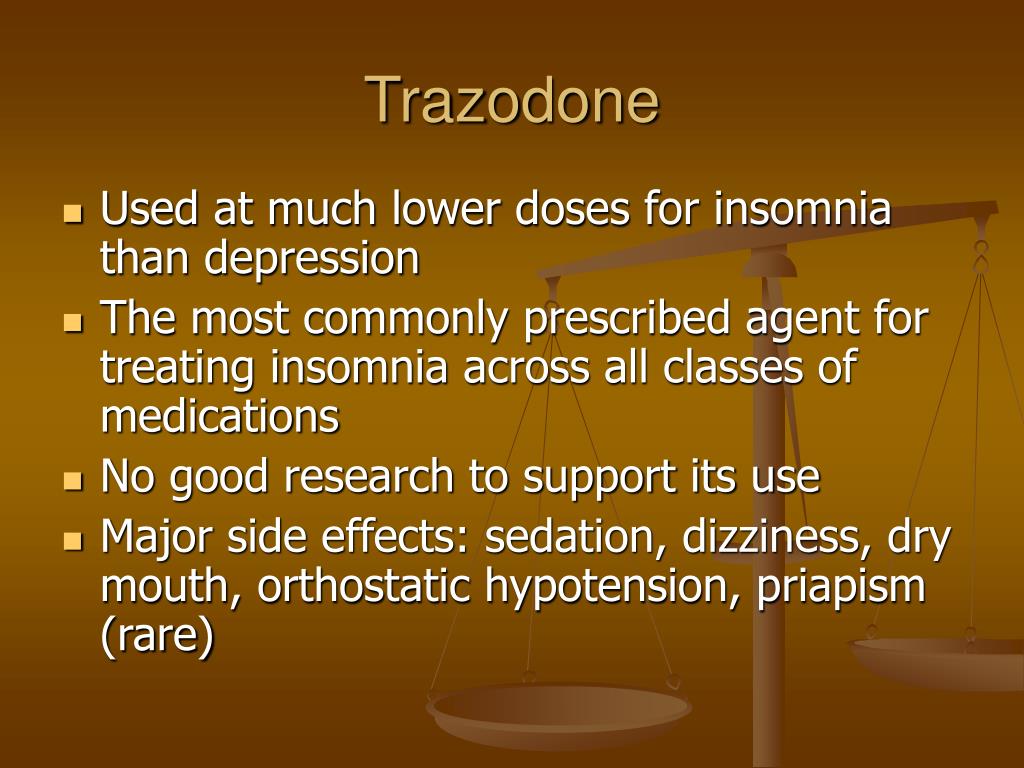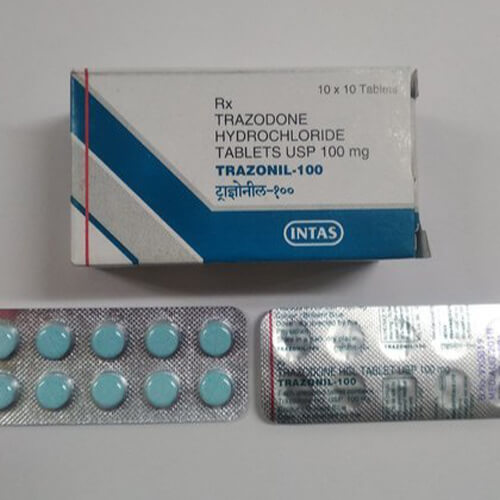
The AASM recommends against using trazodone, tiagabine, diphenhydramine, melatonin, tryptophan, or valerian for either sleep-onset or sleep-maintenance insomnia. For sleep onset insomnia: eszopiclone, zaleplon, zolpidem, triazolam, temazepam, ramelteon.For sleep maintenance insomnia: suvorexant, eszopiclone, zolpidem, temazepam, doxepin.The AASM recommends the following pharmacotherapies 1: The ACP does not recommend specific pharmacotherapy, but rather that clinicians use a shared decision-making approach when determining whether to add pharmacotherapy in adults with chronic insomnia disorder in whom cognitive behavioral therapy for insomnia (CBTI) alone was unsuccessful. If still no improvement, introduce alternative therapies (eg, valerian, melatonin).If still no improvement, combine CBT with evidence-based pharmacology.Reevaluate, especially for occult comorbid disorders. If still no improvement, reconsider diagnosis.If no effect, consider adding additional nonpharmacologic modalities.Initiate treatment with cognitive behavioral therapy (CBT) with/without relaxation therapy.Optimize treatment for any comorbid disorders. However, they follow a general approach 1-5,8: The guidelines vary in their recommendations of specific pharmacologic treatments. Questionnaires, at-home sleep logs, and actigraphy can all be helpful tools for the assessment of insomnia in the absence of other apparent etiologies. For instance, insomnia may lead to anxiety about insomnia, which could further exacerbate sleep fragmentation.

Many individuals may experience insomnia and comorbid disorder(s) concurrently.


1-5 It impairs daytime well-being and subjective abilities and functioning. Insomnia is a condition of unsatisfactory sleep in terms of sleep onset, sleep maintenance, or early waking. This article will review the available pharmacotherapeutic options for treating insomnia. However, several other agents are in later stages of development. To date, only suvorexant and lemborexant have been approved for the treatment of insomnia. More recently, orexin inhibitors have been introduced that may have fewer adverse effects, including the development of dependence. Benzodiazepines and nonbenzodiazepine GABA-A receptor agonists are the traditional medications used to treat insomnia. When cognitive behavioral therapy is not enough, medications can help patients overcome the barriers and learned behaviors that prevent a good night’s sleep.

Cognitive behavioral therapy is the core treatment for insomnia. Up to 10% of the US adult population will experience chronic insomnia, with women and elderly individuals at particularly high risk.


 0 kommentar(er)
0 kommentar(er)
